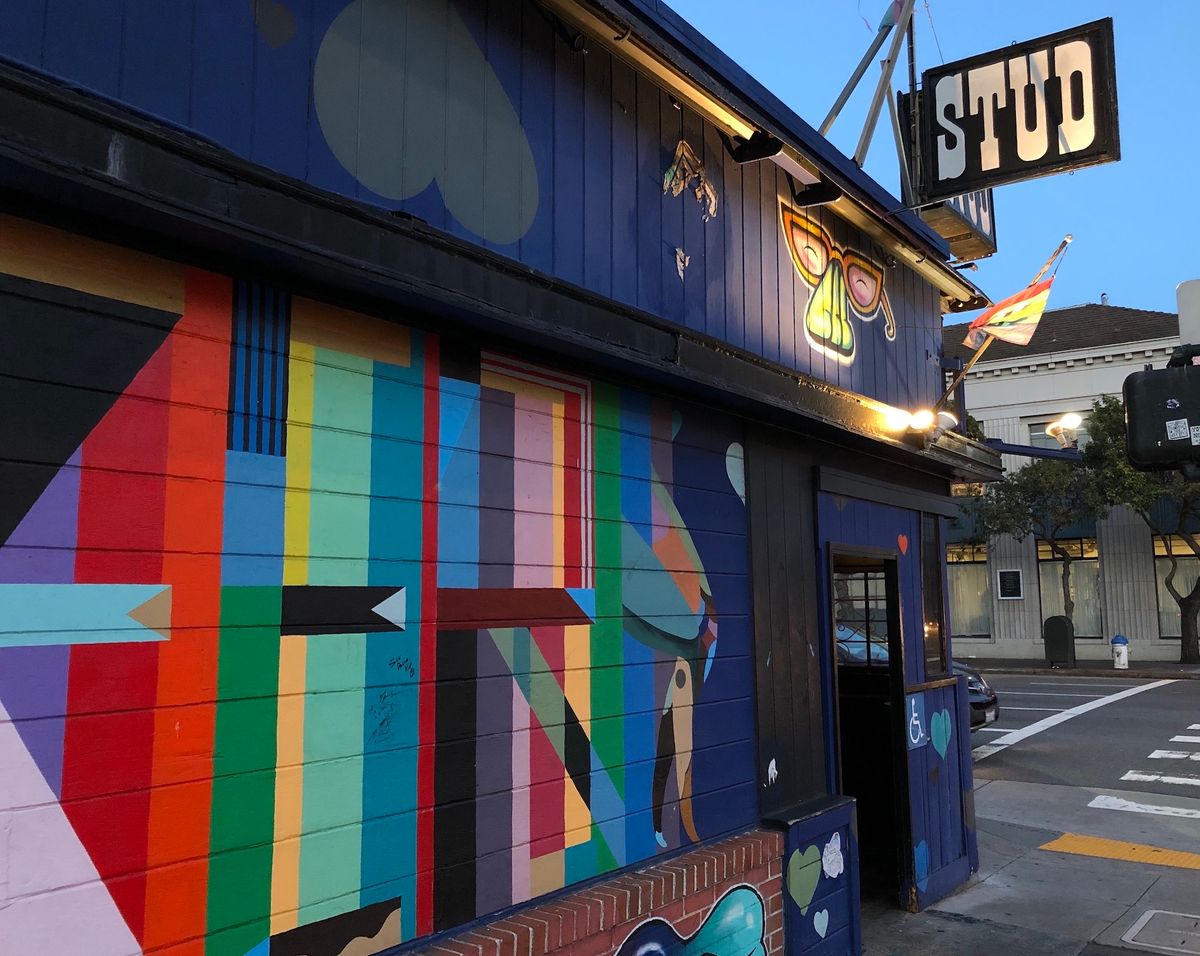Six artists have failed to win their case against a property owner who painted over murals they had created on the front of the Stud Bar, known as San Francisco’s oldest operating queer bar, which closed in May 2020.
The artworks were painted by Monica Canilao, Zarathustra Wesolowski, Ellery Bakaitis, Jeremyu Novy, Susan Greene and Hailey Gaiser during Pride Week in 2017. Court papers describe their creation as a "community celebration as many generations of queers, elders and youth, from all walks of life, came out to visit and cheer the artists on", and claim the works went on to become an "important symbol of refuge".
The owners of the property, City Commercial Investments LLC, whitewashed and painted over the works Hands Lips, Face and Teeth; Queer Trans Spaces; Stud Stencil No.1; Stepping Out; Eyes Wide Open; and Head First after the bar was closed following the Covid-19 pandemic and associated financial challenges.
The artists subsequently filed the claim and sought damages in 2020, arguing that the destruction of the works constituted a breach of the Visual Artists Rights Act (VARA), which includes the right of integrity (or right to prevent any intentional deforming or mutilating changes to their work) and the California Art Preservation Act (CAPA). They added that painting over the murals mid-Pride Week added further distress in "its clear disdain" for the community.
The District Judge, Edward Chen, ultimately concluded that the plaintiffs failed to state a claim under VARA as they did not have original consent from the owner, instead obtaining permission from the company running the bar, Handsome Heidi. The artists’ claim also fell short in proving the works were "removable", with the CAPA and negligence claims simultaneously failing as they would need to be pre-empted by VARA.
Nevertheless, the judge did accept that the works were removed intentionally and did grant the plaintiffs leave to amend to further develop their arguments as it was felt additional time could help build their case.
Jeff Gluck, the Los Angeles-based lawyer representing the artists and a familiar name in intellectual property disputes involving street artists, confirmed that they would be amending the claim and taking matters to trial.
The Art Newspaper was unable to reach legal representatives for City Commercial Investments at the time of this publication, and representatives for Handsome Heidi declined to comment.
The case joins a number of high-profile disputes involving public murals over recent years, in particular recalling the long running dispute over the 5Pointz graffiti site in New York, which saw artists awarded $6.8m in damages after their work was torn down to accommodate a development of luxury apartments.


